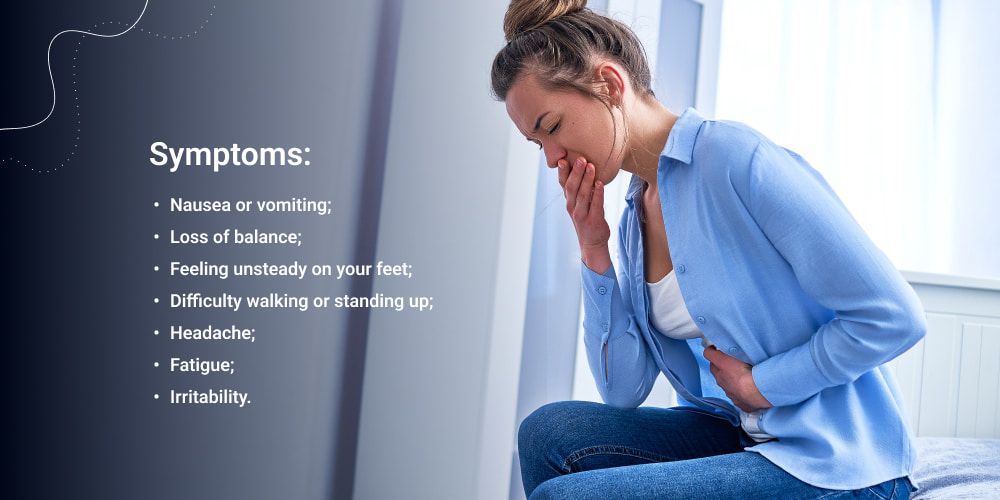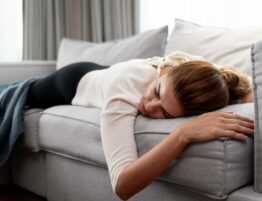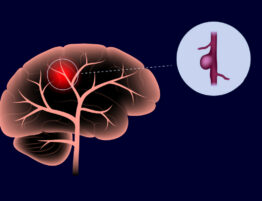If you are like most people, you probably don’t think about your balance until you start to feel off-balance. You may not realize that balance is a complex process that your body works hard to maintain daily. In some cases, however, the body’s balancing system can falter, leading to a condition known as vestibular balance disorder.
A vestibular balance disorder can cause various symptoms, from mild dizziness to near-total paralysis. If you are experiencing any of these symptoms, you must see a doctor and get properly diagnosed. In this article, we will discuss vestibular balance disorder, its causes and symptoms, and how it is treated. We hope this information will help you better understand this condition and seek appropriate treatment if needed. Thank you for reading!
What Are the Main Causes of Vestibular Balance Disease?
The most common cause of vestibular balance disease is a problem with the inner ear. The three semicircular canals in the inner ear are filled with fluid and lined with tiny hairs. These canals help us keep our balance by sensing the movement of our heads. When the liquid in the canals gets disturbed, it can cause dizziness and imbalance.
Other causes of vestibular balance disease include:
- Meniere’s disease: This disorder of the inner ear can cause dizziness, ringing in the ears, and hearing loss.
- BPPV (benign paroxysmal positional vertigo): This condition happens when small calcium particles build up in the inner ear. It can cause brief episodes of dizziness.
- Migraines: These can sometimes cause vestibular balance problems.
- Motion sickness can happen when traveling in a car, boat, or plane. It’s usually caused by a conflict between what you see and what your body feels.
You can try to reduce your risks to prevent you from getting this disease. To do this, you should eliminate sources that can potentially cause disturbances in the vestibular system. You can read more about this in the block about preventing this disease.
Common Symptoms of Vestibular Balance Disorders
The symptomatology of any disease is significant for the correct diagnosis of the disease. To accurately and efficiently determine your specific condition, you should pay attention to the symptoms.
The most common symptom of vestibular balance disease is dizziness. You may feel like the room is spinning or that you’re moving when you’re not. Other symptoms include:
- Nausea or vomiting.
- Loss of balance.
- Feeling unsteady on your feet.
- Difficulty walking or standing up.
- Headache.
- Fatigue.
- Irritability.
If you have vestibular balance disease, you may also have hearing loss or tinnitus (ringing in the ears).
What Are the Complications of Vestibular Balance Disorders?
Many diseases can develop complications. Complications are what usually turn into other conditions or any side effects as a result of the disease. To prevent this, you must properly treat the disease and consult a doctor as soon as you feel any negative changes.
Vestibular balance disease can cause a number of complications, including:
- Falls: Because vestibular balance disease can make you feel unsteady on your feet, you’re at risk for falls. These can lead to injuries, such as fractures or head trauma.
- Depression: Vestibular balance disease can be very isolating. It can make it hard to work or do the things you enjoy. This can lead to depression.
- Anxiety: The fear of falling can lead to anxiety.
Treatment of Vestibular Balance Disorder
Treatment is a critical aspect, often even decisive. To choose the proper treatment, it is necessary to be careful about several aspects at once during the disease. Only in this case will your doctor be able to prescribe the proper treatment and help you recover.
There is no cure for vestibular balance disease, but there are treatments that can help relieve the symptoms.
These include:
- Vestibular rehabilitation: This type of therapy can help your brain learn to compensate for the loss of vestibular function. It can help improve your balance and reduce dizziness.
- Medications: There are several types of medications that can help with vestibular balance disease, including antihistamines, anticholinergics, and vestibular suppressants.
- Surgery: In some cases, surgery may be an option. This includes procedures to repair the inner ear or to remove the vestibular apparatus.
What Is the Outlook for People With Vestibular Balance Disease?
Vestibular balance disease can be a lifelong condition. Most people can manage their symptoms and live normal, active lives with treatment. However, vestibular balance disease can occasionally lead to falls or other injuries. And in rare cases, it can be fatal.
You must see your doctor for regular checkups if you have vestibular balance disease. And be sure to follow your treatment plan. With proper care, you can live a full and active life.
How to Prevent Vestibular Balance Disease?
There is no sure way to prevent vestibular syndrome. However, there are some things you can do to reduce your risk. These include:
- Avoiding loud noise: This can damage the structures in the inner ear and lead to vestibular balance problems.
- Wearing ear protection: If you work in a noisy environment, wear earplugs or other protective gear.
- Managing stress: Stress can trigger migraines, which can sometimes cause vestibular balance problems.
- Taking breaks: If you travel frequently, take breaks often to rest your body and avoid motion sickness.
- Eating a healthy diet: A healthy diet can help reduce your risk of migraines and other health problems that can lead to vestibular balance problems.
- Exercising regularly: Exercise can help improve your balance and coordination. This can help reduce your risk of falls. You can find many exercises to improve your balance both by consulting a doctor and using YouTube. You can also read content or visit thematic forums with all the necessary information.
If you have a vestibular balance disorder, it’s important to see your doctor for regular checkups. And be sure to follow your treatment plan. With proper care, you can live a full and active life.
Bottom Line
Vestibular balance disease is a condition that causes dizziness. It can also cause hearing loss, tinnitus, and other symptoms. There is no cure for vestibular balance disease, but there are treatments that can help relieve the symptoms. With proper treatment and care, most people with vestibular syndrome can manage their symptoms and live normal, active lives.
For timely assistance, call the 214-619-1910 number or click on this button to contact us. After you fill in all the required fields, our manager will contact you and provide all the necessary assistance. And if you are new to our clinic, you should find your form and fulfill it. Only with a quality clinic with a good reputation and experienced doctors from different fields will you be able to receive proper treatment and care.
FAQs
- How can I improve my vestibular balance?
You can do it with the following actions:
- Bend your head down to look at the floor, then up to look at the ceiling while sitting.
- With your eyes focused on the floor and the ceiling, lead your head.
- This should be done ten times. Stop and wait 30 seconds for symptoms to resolve.
- Repeat the entire procedure two more times.
- Is vestibular disorder neurological?
Vestibular diseases are classified as neurological disorders because they result from a nervous system problem. Either the nerves in the inner ear, the peripheral system, or the central system, the brainstem, are malfunctioning.
- Can anxiety cause vestibular problems?
Stress and anxiety can both contribute to vestibular system dysfunction. If any part of this system is compromised, dizziness or vertigo may occur.
- What is the leading cause of balance problems?
Medication, an ear infection, a head injury, or anything else affecting the inner ear or brain can cause balance problems. When you stand up too quickly, low blood pressure can cause dizziness.













Please, leave your review
Write a comment: